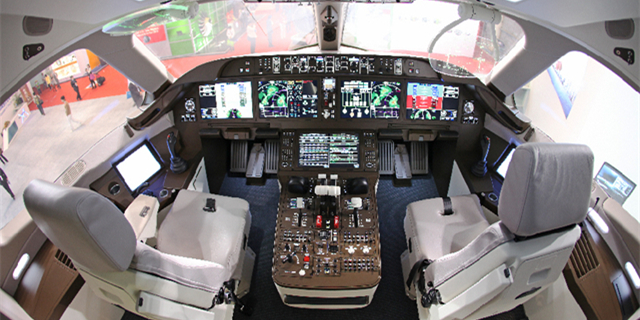Rejuvenated Port To Make A Splash
Four years ago, an outdated Gwadar was in decline. But Chinese companies and cash have changed things. Zhang Yunbi reports from Islamabad, Pakistan, with Chen Yingqun in Beijing.
Editor's note: This is the seventh in a series of reports focusing on the development of the Belt and Road Initiative, China's proposed trading route linking Asia, Europe and Africa.
Gwadar Port, in Southwest Pakistan, occupies a great location, according to experts, because its proximity to the Arabian Sea gives China and Central Asian countries access to the Persian Gulf and the markets of the Middle East.
Yet, only four years ago, the port was rundown.

The facilities were in great need of new equipment and repairs, some Chinese scholars visiting there recalled.
Since then, Chinese companies have expended a great deal of energy to bring a new look to the port, with upgraded equipment, new cargo containers and newly built office buildings.
The changes have resulted in a surge in the number of visitors and flourishing property and hotel businesses.
According to Sun Weidong, China's ambassador to Pakistan, Gwadar Port will have a unique place in the Belt and Road Initiative.
"It will improve regional connectivity and economic and trade cooperation, and it will be a hub connecting the region's land and maritime routes. Additionally, the port's free zone will facilitate free trade in the region," he said, calling Gwadar's rejuvenation a long-term project that "should proceed step-by-step".

He said that construction of the East Bay Expressway and a new international airport will be accelerated, and Gwadar will form part of the China-Pakistan Economic Corridor, a planned network of roads, railways and energy projects linking it with the Xinjiang Uygur autonomous region.
Wang Yiwei, professor of international relations at Renmin University of China, said the China-Pakistan Economic Corridor is a tangible megaproject that will "undertake the great mission of prompting the economic takeoff and even the rise of Pakistan".
"For China, the corridor will help to bolster the development of connectivity in the region and achieve common development and prosperity for all countries," he added.
Rapid progress
President Xi Jinping's visit to the South Asian country in April 2015 placed Gwadar Port and the economic corridor high on the agenda.
During his meeting with Pakistani Prime Minister Nawaz Sharif, Xi said the two countries needed to form a "1+4" cooperation structure, placing the corridor at the center and making Gwadar Port one of four key areas of cooperation.
Last year, the two countries began upgrading the Karakoram Highway between Havelian and Thakot, and a highway linking Karachi and Lahore, Pakistan's largest cities.
Work also began on 10 energy projects, including a coal-fired power plant in Sahiwal, Punjab province, with total installed capacity reaching 7.3 million kilowatts.
On Nov 13, the deep-water Gwadar Port received its first large shipment of Chinese goods, strengthening trade links between western China and the Arabian Sea.
"The corridor will help to integrate these regions into an economic zone offering great opportunities for local people as well as investors from all over the world," Sharif said, during an address at a ceremony to welcome the first joint trade convoy.
During a visit to Pakistan in April, Yu Zhengsheng, China's top political adviser, told Sharif that construction related to the corridor "has made important progress and a slew of major projects have entered a phase of comprehensive implementation".
Mutual benefits
Muhammad Shehbaz Sharif, chief minister of Punjab province, said the Belt and Road Initiative - including the corridor - demonstrates that China is taking practical steps to establish a development model that will not just benefit China, but also build mutually beneficial partnerships aimed at distributing the fruits of prosperity.
He said the corridor is underway and eight industrial zones have been planned, which will create investment and employment opportunities.
Pakistan's GDP will rise by 2 percent after the completion of energy sector projects, for which $34 billion - a major chunk of corridor investment - has been earmarked, he said.
According to a February report by international ratings agency Moody's, the corridor will boost economic activity in Pakistan, whose growth rate is expected to be 4.9 percent this year.
According to Moody's, the corridor will boost economic activity, raise industrial production and augment development work, the Times of Islamabad reported.
Liu Ying, a research fellow at the Chongyang Institute for Financial Studies at Renmin University, said infrastructure construction for the corridor will develop Pakistan's economy, and it will not only benefit China and Pakistan, but all countries along the route.
"The corridor will help cut the journey time for freight between Gwadar Port, West China and the Central Asian regions by 60 to 70 percent," he said.
Renmin University's Wang said the corridor will set a good example and prompt other countries to follow suit. One of the spillover effects will be that cooperation in the South Asia region will be strengthened in three areas: development, security and governance.
"Its influence on global governance to reinforce pragmatic cooperation between China and Pakistan will help Pakistan to break the vicious circle of long-term poverty, violence and terrorist attacks," he said.
Social responsibilities
Chinese companies and their employees have played major roles in the boom in operations at the port and along the route of the corridor, and their efforts have been backed by examples of corporate social responsibility.
One example is the China-Pakistan Government Primary School in Faqeer Colony Gwadar, sponsored by the China Foundation for Peace and Development.
In September, the school, which will offer education to 400 local children, was officially transferred to Pakistani control.
"The school is spacious, safe and comfortable, and it offers ideal conditions for the students. It fully illustrates the great friendship and bonds between Chinese and Pakistani people," said Sun Weidong, China's ambassador to Pakistan.
An emergency medical center at Gwadar Port funded by the Chinese Red Cross Foundation will be completed this month, and Chinese doctors will help to provide greater access to medical resources, according to People's Daily.
Xinhua contributed to this story.
Contact the writers at zhangyunbi@chinadaily.com.cn
|
|

(China Daily 05/04/2017 page1)

















